Argentina's Unpaved Promise: The High Stakes Driving La Rural's Critical Dialogue
Argentina's vital farming sector faces crippling infrastructure & tax burdens. Explore how La Rural's dialogue with leadership shapes the nation's agricultural future.
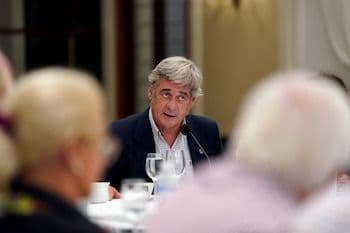
The Annual Call to Action: La Rural's Enduring Significance
Every year, the bustling grounds of in transform from a mere exhibition space into the beating heart of Argentina's agricultural dialogue. It's far more than a showcase of livestock and machinery; it's a high-stakes arena where the nation's foundational sector confronts its most pressing challenges. This annual gathering serves as a critical barometer for the rural economy, a platform where producers, entrepreneurs, and policymakers converge to dissect issues ranging from crippling export taxes to the dire state of national infrastructure, especially the vital rural roads. The infamous 'Patagonian barrier,' hindering the movement of goods to and from the south, also consistently tops the agenda, underscoring the deep-seated logistical and competitiveness hurdles. , head of the , perfectly captures this sentiment, viewing La Rural as a 'great resonating box' – a historical stage where presidents have traditionally delivered significant announcements. The air is thick with anticipation, particularly with President 's expected address, as the sector yearns for concrete commitments to unlock its immense, yet often constrained, potential.
Beyond the Balance Sheet: The Tangible Costs of Neglect
The challenges articulated at La Rural extend far beyond mere balance sheet figures; they carry profound human and societal costs. While export duties and regional profitability are perennial concerns, the deteriorating state of Argentina's infrastructure, particularly its rural road network, represents a stark and often tragic reality. Agricultural leaders don't just lament inefficient logistics and compromised competitiveness; they paint a harrowing picture of 'notable and dangerous' road conditions. Imagine the daily grind: producers struggling to transport their harvests, facing increased freight costs, damaged equipment, and the constant threat of accidents. Pino chillingly highlighted this, speaking of the personal toll: "For our lives and our families, it is truly serious. All of us, unfortunately, have recently experienced an accident or the death of a relative or friend due to the deplorable state of the roads." This isn't just about economic loss; it's about the very real human cost of chronic underinvestment. Ultimately, as Pino asserted, "Someone pays for all this deficit – producers, society as a whole. We all pay for the lack of investment."
Rhetoric Meets Reality: Milei's Stance and the Sector's Unyielding Demands
President 's engagement with the , the country's main agricultural entities, at La Rural's premises offered a glimpse into the delicate dance between political rhetoric and the sector's urgent demands. Milei, acknowledging the agricultural sector as Argentina's most competitive, reportedly promised that export taxes would be the next target for reduction, and crucially, that any such cut would be "definitive, not transitory." This commitment was undoubtedly a welcome gesture for a sector long burdened by these levies. However, the devil, as they say, is in the details – specifically, the absence of a concrete timeline for these promised reductions. 's reaction perfectly encapsulated this nuanced reception: "I am satisfied with the gesture. The content… some might have expected more." While appreciative of the dialogue, the agricultural community remains acutely aware that promises, however well-intentioned, must translate into tangible policy shifts. Their demands extend beyond just taxes, encompassing critical issues like regional profitability and the dire need for infrastructure investment that directly impact their daily operations and long-term viability.
Paving the Way Forward: Rebuilding Trust and Argentina's Rural Future
The annual convergence at serves as a powerful reminder that Argentina's rural future hinges on more than just good intentions; it requires a concerted effort to rebuild trust through demonstrable action. The core demands remain steadfast: a decisive reduction in export taxes, coupled with a robust commitment to national infrastructure, especially the rural roads that are the lifeblood of production. Logistical inefficiencies, exacerbated by crumbling pathways and regional barriers like the Patagonian divide, directly inflate costs and stifle the sector's capacity for growth. As agricultural leaders repeatedly stress, the cost of freight and the wear and tear on equipment due to poor roads are direct drains on profitability. La Rural, therefore, isn't just a place for grievances; it's a vital forum for accountability, where the sector seeks assurances that political pronouncements will translate into meaningful investment. For to truly unleash its vast agricultural potential and solidify its position as a global food producer, the dialogue at La Rural must evolve from an annual call to action into a consistent partnership, delivering the concrete policy shifts and infrastructure improvements needed to pave the way forward.
Related Articles
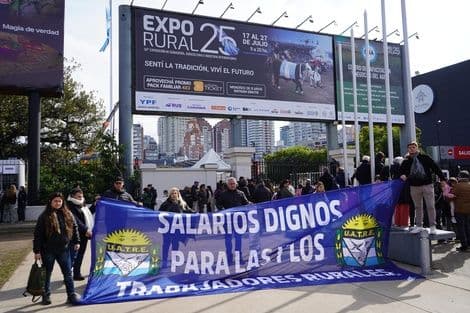
Harvesting Inequality: Argentina's Rural Workers Fight for Dignity Amidst Abundance

Harvesting Inequality: Argentina's Rural Workers Fight for Dignity Amidst Abundance
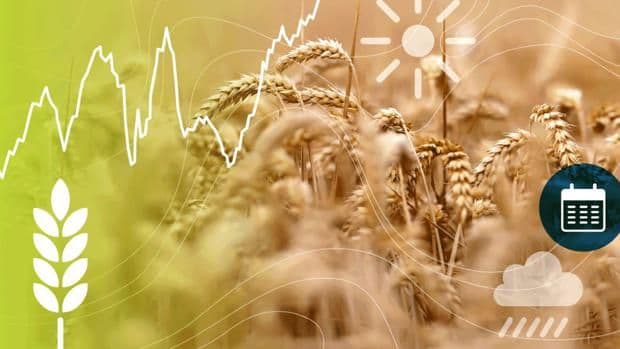
The Pampas Paradox: Unraveling Argentina's Turbulent Agricultural Destiny

The Pampas Paradox: Unraveling Argentina's Turbulent Agricultural Destiny
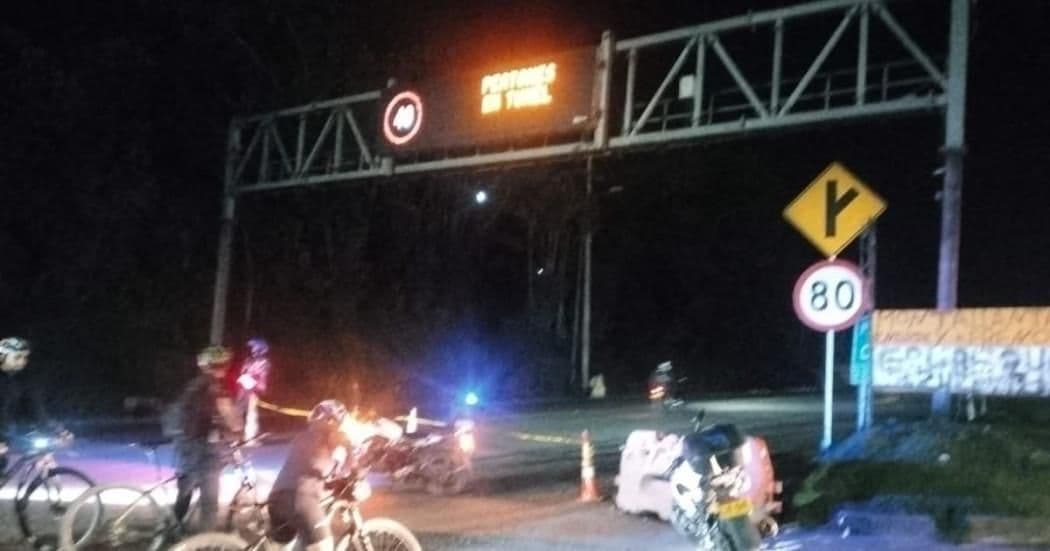
Harvest of Discontent: Colombia's Rice Farmers and a Nation on Hold

Harvest of Discontent: Colombia's Rice Farmers and a Nation on Hold
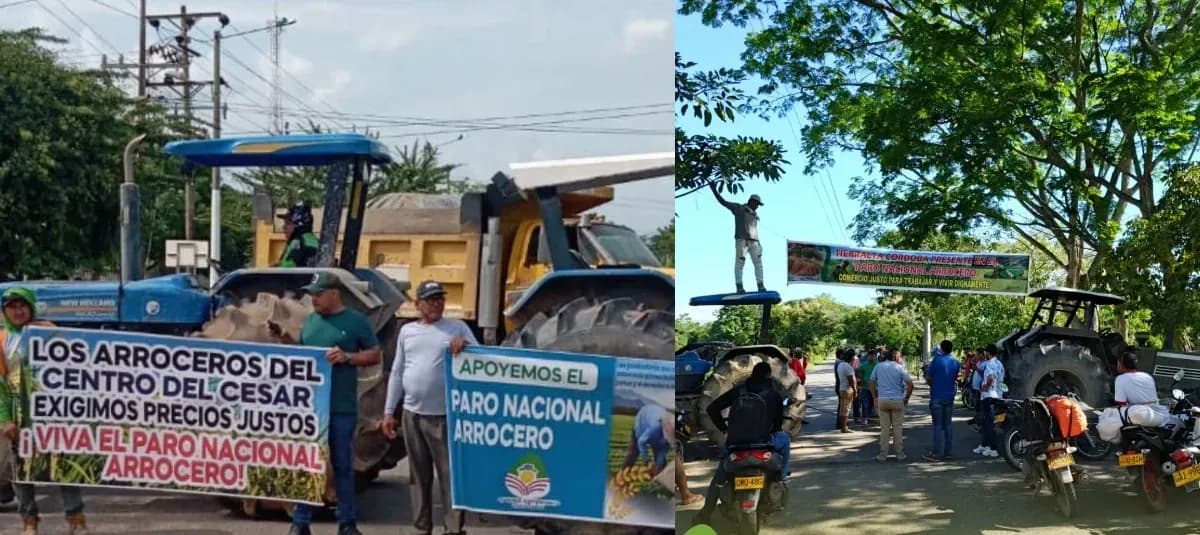
Harvesting Justice: Colombia's Rice Farmers' Fight for Livelihoods and National Food Security
